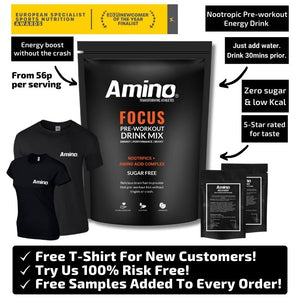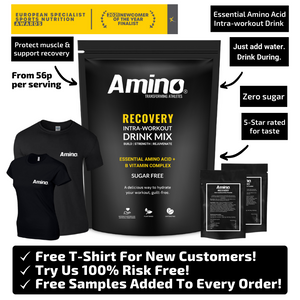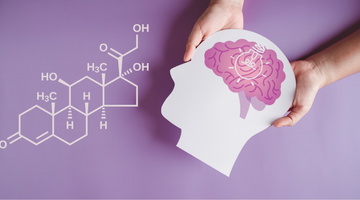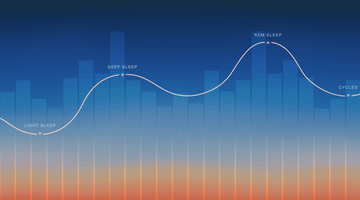Here at Amino, the team are always looking to find ways in which we can optimise our bodies to perform better. And although we don’t recommend alcohol as part of your training plan, it’s such a common way in which we all enjoy ourselves, we thought it would be useful to do an article on how to deal with its ill effects.
In this article, we try and help you understand the impacts of alcohol and then outline a few strategies for reducing the effects that alcohol has on your body in and around your training and your subsequent fitness goals, whether its fat loss or muscle building.
Impacts of alcohol on:
Strategies to biohack the effects of alcohol:
Impacts of alcohol
Firstly, knowing what alcohol does to your body can help you choose to take action and reduce the ill effects of drinking. Note that alcohol contains 7 calories per gram - double that of typical carbohydrates - plus when you drink alcohol, all metabolic processes in the body are put on hold until it is metabolised. This means fat and carbohydrate burning are halted, as is tissue re-building and protein synthesis. Alcohol can depress growth hormone production and significantly increase levels of cortisol (stress hormone) in the body.
Alcohol and building muscle
Alcohol reduces the rate of protein synthesis, so if you're a frequent drinker you may find it harder to build muscle. Timing-wise, drinking after a weights session (or hypertrophic type workout) is more impactful and can reduce protein synthesis by 15-20%. However, drinking before a weights session has less of an impact - but we’re talking the day before and not suggesting training drunk.
The moral is…. don’t erase your hard work! Avoid a heavy lifting session on the same day you have a big night planned as it will erase performance gains and delay recovery.
If you want to read more, check out the Poliquin groups’ article Avoid Alcohol After Training.
Alcohol and fat loss
We all know that alcohol provides empty calories and so frequently drinking is not going to do us any favours when attempting to lose weight. But more importantly, when alcohol is present in the blood “fat-burning” is turned off throughout the body, so if you have a calorie surplus at the time of drinking this energy will be stored as fat.
If you're eating whilst drinking, your best bet is to opt for high-quality proteins, low carb and high fibre foods such as vegetables and low carb fruits. This will slow the rate at which alcohol hits your blood and give your liver more time to be able to metabolise it. Protein also stimulates enzyme production and blood flow to the liver for enhanced metabolism.
Alcohol and hormones
Your hormones will be affected by alcohol. Studies show that cortisol (the stress hormone) is the most affected by alcohol and particularly binge drinking (6 drinks+) can create a large spike in cortisol that can last for up to 24 hours.
One study showed an average 152% rise in cortisol levels 4 hours after the last drink was consumed. Prolonged stress levels may impair recovery and performance gains from training.
Our suggestion is if you’re training the day after, keep the session recovery focussed, raise your heart rate and just focus on sweating it out!
Alcohol and cognitive function
Studies on rugby players showed that alcohol affects cognitive performance, reaction time and decision making. One study in which trained men were given 3 vodkas with a meal, their ability to generate force rapidly was reduced by 45% the day after drinking, whilst smaller doses didn’t impact performance.
Practising moderation or avoiding alcohol (more than 2 drinks depending on body size) in the days around skill-based sports will provide the maximum benefit, otherwise, it will impact physical and mental performance and recovery plus compromise learning and skill development during practice.
Strategies to biohack the effects of alcohol
Now that you better understand the impacts, it is useful to have a few strategies for reducing the effects of alcohol on your body especially if you need to perform at your best.
Stay hydrated
Part of the suffering caused by alcohol is dehydration, this is because the process of metabolising alcohol results in the loss of water from the cells and bloodstream. So as well as trying to stay hydrated as you drink, re-hydration the next day is the first step to recovery.
Re-hydration biohacks include drinking water with electrolytes which get depleted as you become dehydrated. I generally drink coconut water but that’s not for everyone. You need not buy anything special, I have used things like sodium bicarbonate (i.e. baking powder) in the past (1/2 tsp per cup) which is a good electrolyte replenisher and systemic alkalizer.
Another option would be to add a Vitamin C tab to your water. This will help block the conversion of alcohol into aldehyde, the most hangover-ache causing metabolite.
Sweat
Sweating is one of the best ways that your body can eliminate toxins.
Naturally, the morning/day after you will feel sluggish (and not really up for a session) so plan for that and keep it short and mentally easy for yourself. Your speed and strength will be reduced, studies show that your power and strength can be reduced by 45% for up to 12 hours after drinking. Your goal is just to raise heart rate and blood flow and sweat. So do a short moderate intensity work out sprints, intervals or a rep based circuit.
Eat protein, vegetables
If you can, focus on optimal nutrition, avoid carbs, eat high-quality protein with vegetables before drinking as this can minimise cravings for alcohol, high carb and fatty foods. Opt for asparagus, broccoli, cauliflower, collard greens, spinach, berries, kiwi etc.
Detox
Take some steps to try and detox. Green tea has been shown to aid liver function when metabolising alcohol. Especially in larger doses (around 5 cups in a day). Milk thistle and curcumin have also been known to curb the ill effects of alcohol.
Take an l-glutamine supplement, it helps your body make its own antioxidant! So does alpha-lipoic acid (ALA) and N-Acetyl Cysteine (NAC) which is also a great nutrient for liver support.
Finally, extra B Vitamins and amino acids can support the detoxification of alcohol. Dare I say it... you can’t go wrong with drinking an Amino Recovery drink the morning after. 🙂
Moderate what you drink
Moderation works, 1-2 drinks will not significantly affect athletic performance the next day.
There is also a hierarchy of alcohol, dry wines tend to have the lowest calories averaging 90 calories per drink. Liquors tend to have slightly over 100 calories per drink and beer the most with 150 calories per drink.
Plan when you drink
Due to alcohols effect on protein synthesis avoid a heavy lifting session on the same day you have a big night planned as it will erase performance gains and delay recovery.
Also, drinking in the days around skill-based sports should be avoided as it will impact physical and mental performance and recovery plus compromise learning and skill development during practice. We suggest avoiding alcohol 36 hours prior to a game/competition/practice sessions.
Key takeaways
DO
- Drink LOTS of water with electrolytes before and after drinking.
- Get extra B-vitamins and amino acids to support detoxification.
- Boost antioxidant levels with l-glutamine, alpha-lipoic acid (ALA) and N-Acetyl Cysteine (NAC).
- Use detox aids such as curcumin (found in turmeric), green tea, milk thistle.
- Choose dry wine over beer. Practice moderation where possible.
- Focus on optimal nutrition, avoid carbs, eat high-quality protein with vegetables.
- Sweat. Athletes excrete more toxins than sedentary people.
DON'T
- Erase your hard work. Avoid alcohol after hard training sessions.
- Hinder your performance. Avoid alcohol 36 hours prior to a game/competition.






